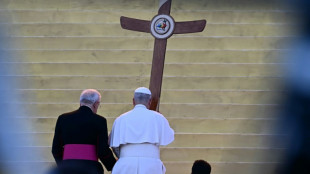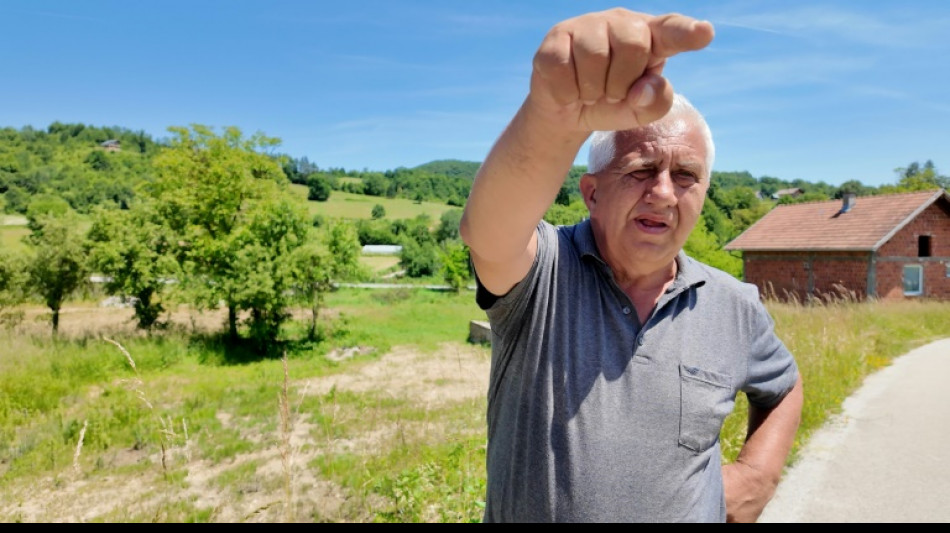
-
 Coleman defends 'great person' Richardson after assault controversy
Coleman defends 'great person' Richardson after assault controversy
-
Lyles, Jefferson-Wooden storm to victories at US trials

-
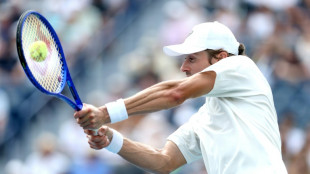 De Minaur survives Tiafoe to reach Toronto quarter-finals
De Minaur survives Tiafoe to reach Toronto quarter-finals
-
Young captures long-awaited first PGA Tour win at Wyndham Championship

-
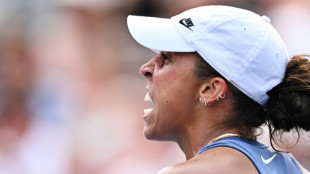 Osaka roars into WTA Montreal quarter-finals as Keys fights through
Osaka roars into WTA Montreal quarter-finals as Keys fights through
-
West Ham blanks Bournemouth in Premier League US series

-
 White's two homers drive Braves to 4-2 win over Reds in MLB Speedway Classic
White's two homers drive Braves to 4-2 win over Reds in MLB Speedway Classic
-
Bolsonaro backers rally to praise Trump for Brazil pressure
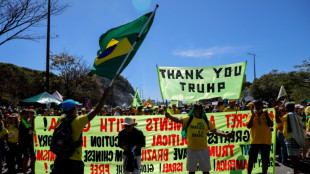
-
 Richardson exits 200m at US trials, Coleman through
Richardson exits 200m at US trials, Coleman through
-
Ferrari boss confident 'frustrated' Hamilton will bounce back after Hungarian GP
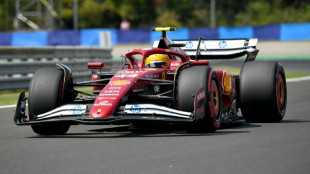
-
 Chelsea sign Dutch defender Hato from Ajax
Chelsea sign Dutch defender Hato from Ajax
-
'Fantastic Four' stretches lead to 2nd week at N.America box office

-
 Japan's Yamashita wins Women's British Open to clinch first major
Japan's Yamashita wins Women's British Open to clinch first major
-
Netanyahu asks ICRC for help after 'profound shock' of Gaza hostage videos
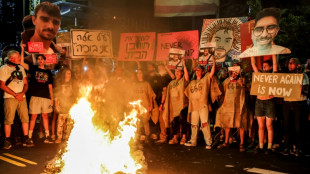
-
 French rider Ferrand-Prevot solos to victory in women's Tour de France
French rider Ferrand-Prevot solos to victory in women's Tour de France
-
Oval downpour leaves England-India series on knife edge

-
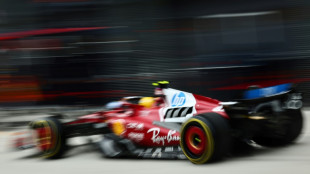 Despondent Hamilton and Ferrari crash back to earth
Despondent Hamilton and Ferrari crash back to earth
-
Norris relishing combat with McLaren teammate Piastri
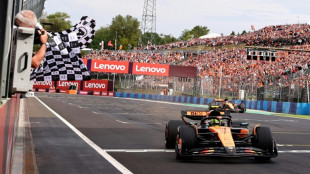
-
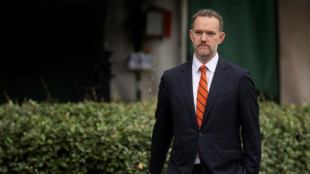 US trade advisor says Trump tariff rates unlikely to change
US trade advisor says Trump tariff rates unlikely to change
-
Norris wins in Hungary to trim Piastri lead as McLaren reel off another 1-2
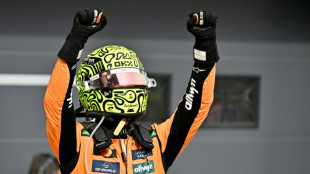
-
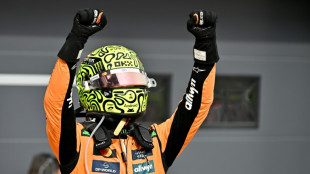 Norris wins Hungarian Grand Prix in another McLaren 1-2
Norris wins Hungarian Grand Prix in another McLaren 1-2
-
Brook and Root run riot as England eye stunning win in India decider

-
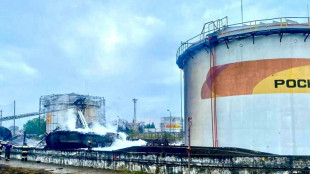 Ukrainian drones spark fire at Sochi oil depot
Ukrainian drones spark fire at Sochi oil depot
-
Lando Norris wins Hungarian Grand Prix in another McLaren 1-2
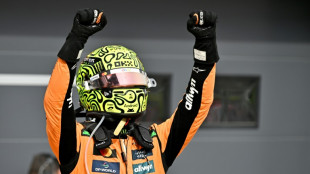
-
 Departing Spurs captain Son in tears on emotional evening
Departing Spurs captain Son in tears on emotional evening
-
Marchand says 'passion' burns bright on road to 2028 Olympics

-
 McIntosh says narrowly missing Phelps feat keeps her 'hungry' for LA
McIntosh says narrowly missing Phelps feat keeps her 'hungry' for LA
-
Eight OPEC+ countries raise production by 547,000 bpd
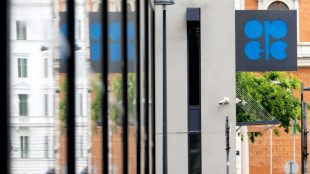
-
 Marchand, McIntosh dominate as US end turbulent worlds with record
Marchand, McIntosh dominate as US end turbulent worlds with record
-
Marchand, McIntosh rampant as US end turbulent worlds with record

-
 Olympic champ Finke slams 'stupid' criticism of US world swim team
Olympic champ Finke slams 'stupid' criticism of US world swim team
-
Bangladesh protest victim gives evidence at ex-PM trial
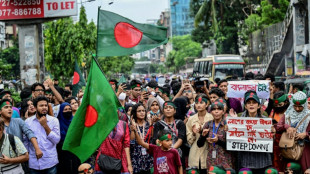
-
 McIntosh wins fourth Singapore gold with 400m medley title
McIntosh wins fourth Singapore gold with 400m medley title
-
Siraj strikes for India as England's Brook rides his luck in Oval thriller
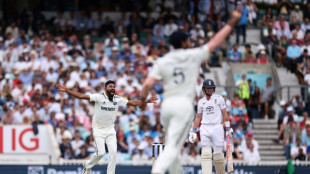
-
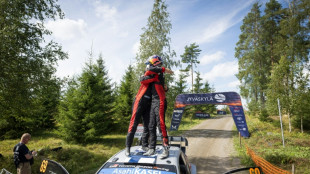 Rovanpera delights home crowd with Rally of Finland victory
Rovanpera delights home crowd with Rally of Finland victory
-
Tunisia's Jaouadi pushes through pain for second world gold

-
 Australia's beaming Harris foils Walsh treble bid at swimming worlds
Australia's beaming Harris foils Walsh treble bid at swimming worlds
-
Pope's 'Jubilee of Youth' ends with mass for 1 million pilgrims

-
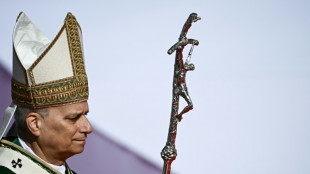 Pope's 'Jubilee of Youth' ends with Rome mass for 1 million pilgrims
Pope's 'Jubilee of Youth' ends with Rome mass for 1 million pilgrims
-
Israel PM says in 'profound shock' over hostage videos
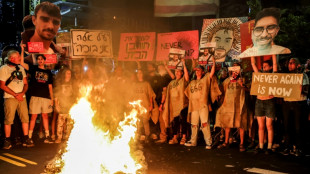
-
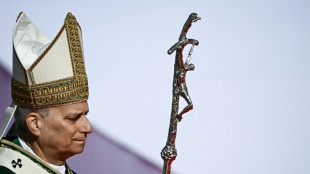 Pope's 'Jubilee of Youth' closes with huge Rome mass
Pope's 'Jubilee of Youth' closes with huge Rome mass
-
Citroen 2CV lovers gather in Slovenia to take the slow road
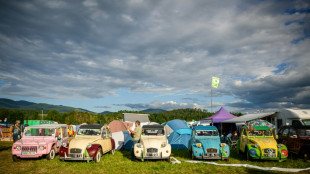
-
 Assange joins pro-Palestinian protest on Sydney Harbour Bridge
Assange joins pro-Palestinian protest on Sydney Harbour Bridge
-
All Blacks scrum-half Roigard out of Argentina Tests

-
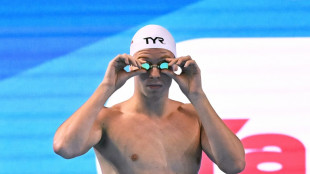 'Struggling' Marchand targets second gold at swimming worlds
'Struggling' Marchand targets second gold at swimming worlds
-
Last-ball hero Holder lifts West Indies over Pakistan in T20
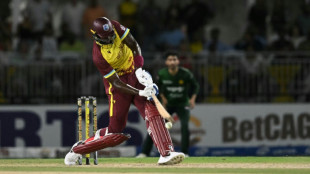
-
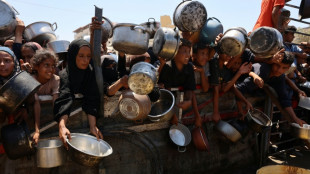 Chaos, gangs, gunfire: Gaza aid fails to reach most needy
Chaos, gangs, gunfire: Gaza aid fails to reach most needy
-
Top seed Zverev, defending champ Popyrin book ATP Toronto quarter-final
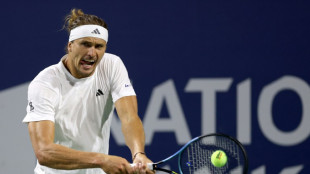
-
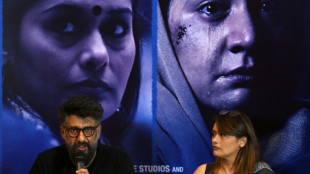 Filmmakers try to cash in on India-Pakistan battle
Filmmakers try to cash in on India-Pakistan battle
-
Rain suspends MLB Speedway Classic until Sunday
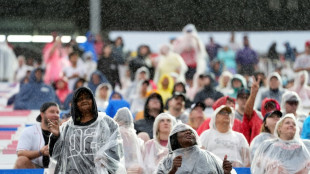
| RBGPF | 0% | 74.94 | $ | |
| SCU | 0% | 12.72 | $ | |
| CMSD | 0.34% | 23.35 | $ | |
| SCS | -1.47% | 10.18 | $ | |
| RELX | -0.58% | 51.59 | $ | |
| NGG | 1.99% | 71.82 | $ | |
| GSK | 1.09% | 37.56 | $ | |
| RYCEF | 0.07% | 14.19 | $ | |
| CMSC | 0.09% | 22.87 | $ | |
| BCC | -0.55% | 83.35 | $ | |
| RIO | -0.2% | 59.65 | $ | |
| JRI | -0.23% | 13.1 | $ | |
| VOD | 1.37% | 10.96 | $ | |
| BTI | 1.23% | 54.35 | $ | |
| AZN | 1.16% | 73.95 | $ | |
| BCE | 1.02% | 23.57 | $ | |
| BP | -1.26% | 31.75 | $ |

Relatives struggle to find last 1,000 Srebrenica victims 30 years on
Sadik Selimovic's relief at surviving the Srebrenica massacres 30 years ago did not last long.
When he found out that his father and three brothers had not been so lucky, his life took the "only possible turn" -- to find them.
Three decades on, the 62-year-old, who was driven to become an investigator at the Bosnian Institute for Missing Persons, cannot hide his anguish that the remains of around 1,000 of the victims have yet to be found.
More than 8,000 Muslim men and boys were killed within a matter of days in July 1995 after Bosnian Serb forces captured Srebrenica, which was supposed to have been a UN "protected zone" watched over by Dutch peacekeepers.
"Over the past three years, we have searched 62 locations" hoping to discover mass graves from the slaughter -- since declared a genocide under international law -- "but we have not found a single body," Selimovic told AFP.
"Those who know (where the graves are) do not want to say," he said.
Selimovic spends his time searching for witnesses among the Serbs living in and around Srebrenica, often his neighbours, school friends or those he worked with before the war at the Potocari battery factory, now a genocide memorial centre.
"How can they live with what they know?" he said. "I can't understand it. But it has to be said, there are people who have talked."
- Mass graves -
The last mass grave of Srebrenica victims, which held 10 bodies, was discovered in 2021 in the Dobro Polje area, 180 kilometres (111 miles) southwest of the town.
More than 6,800 of the dead, some 80 percent, have been identified, said Dragana Vucetic, a forensic anthropologist at the International Commission for Missing Persons (ICMP).
But that work has been complicated by the gruesome way the perpetrators tried to cover up their crimes.
The ICMP morgue and the Bosnian Missing Persons Commission in Tuzla hold the remains of "90 cases whose genetic fingerprint has been isolated" but who have not yet been identified.
There are also about 50 identified victims whose "families do not wish to validate the identification and bury them, most often because skeletal remains are incomplete", said the expert, who has worked investigating the genocide for more than two decades.
Initially, the victims' bodies were thrown into mass graves near the "five mass execution sites".
"A few months later, these graves were opened, and the corpses, already in the early stages of decomposition, were transported to other locations, sometimes hundreds of kilometres (miles) away," said Vucetic.
- Hiding the evidence -
The bodies were then "torn to pieces" by mechanical shovels and bulldozers and transported, often to two or three different locations, in an attempt to conceal the crime.
"Only 10 percent of bodies found during exhumations were complete," said Vucetic. DNA testing has allowed some skeletons to be reconstructed, sometimes from parts found in four different mass graves.
About 6,000 people were identified between 2012 and 2022, but since then the process has slowed, with only three this year so far.
Mevlida Omerovic, 69, has been hoping since 2013 that more of her husband Hasib's skeleton would be found so she could lay him to rest.
He was killed aged 33 with his brother Hasan.
"There's just his jaw, but I have now decided to bury him" at the Srebrenica memorial centre during the commemoration of the genocide's 30th anniversary on July 11, she said.
"We will know where his grave is and we will be able to go there and pray."
Her brother Senad, who was 17 when he was killed, has never been found.
The investigator Selimovic found the remains of his brothers and father. The last, his younger brother Sabahudin, was buried in 2023.
But he has no intention of stopping looking for the others. "That's what keeps me alive. I know what it feels like when you're told your loved one has been found," he said.
So he reads and re-reads testimonies and criss-crosses the area, revisiting the same places dozens of times. "We will find some (more) people," he insisted. "If other mass graves exist -- and I think they do -- we will find them."
But he fears the Drina River, which flows near Srebrenica forming the border between Bosnia and Serbia, "is the biggest mass grave of all", he said.
"No one will ever find those who ended up there."
Q.Jaber--SF-PST

